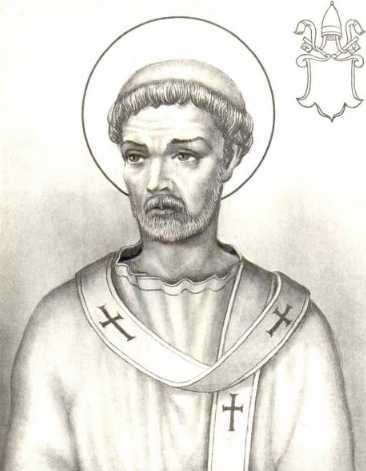 On the 12th of September, A.D. 259, Saint Dionysius, born in Calabria, a priest of the Roman Church, was created pope. He rearranged the parishes of Rome, and re-established those institutions which had been disturbed by Valerian’s persecutions.
On the 12th of September, A.D. 259, Saint Dionysius, born in Calabria, a priest of the Roman Church, was created pope. He rearranged the parishes of Rome, and re-established those institutions which had been disturbed by Valerian’s persecutions. On the 12th of September, A.D. 259, Saint Dionysius, born in Calabria, a priest of the Roman Church, was created pope. He rearranged the parishes of Rome, and re-established those institutions which had been disturbed by Valerian’s persecutions.
On the 12th of September, A.D. 259, Saint Dionysius, born in Calabria, a priest of the Roman Church, was created pope. He rearranged the parishes of Rome, and re-established those institutions which had been disturbed by Valerian’s persecutions.
Saint Basil calls Dionysius a man illustrious for fidelity to the faith and for virtues of every kind; and the same is said of this pope by his namesake, Dionysius, Bishop of Alexandria, whom Saint Anastasius speaks of as an admirable prelate. Pope Dionysius had so long and perfect an acquaintance with the doctrines of true Church that he might have served as the referee of an oecumenical council. During the dispute about the baptism of heretics he adhered to the decision of Stephen.
The city of Caesarea, in Cappadocia, having been sacked by the barbarians, Pope Dionysius, faithful to the generous traditions of his predecessors, sent to the churches there both consolation and means to redeem Christians from slavery, which circumstance caused the people to bless the memory of that pontiff, and to hold his letters in great veneration. Nevertheless, the harmony which had existed between Dionysius of Rome and Dionysius of Alexandria was on the point of being disturbed on account of a serious error of the latter. He undertook to refute with some warmth the heresy of Sabellius, who recognized in God no distinction of persons. Some believed, or pretended to believe, that in combating that error Dionysius of Alexandria had fallen into another that was no less blameworthy – that of supposing the Son not to be consubstantial with the Father. The pontiff wrote to him, and from the explanations which were given there resulted, as the pontiff hastened to acknowledge in the tenderest terms, a complete satisfaction. Gallienus commanded that persecution should cease, and declared it his pleasure that every one should freely follow his own creed. The pontiff, after a long life, holily employed, died A.D. 269. He governed the Church ten years, five months, and a few days.
In two ordinations he created seven bishops, twelve priests, and six deacons. He was interred in the cemetery of Calixtus.
After his decease the Holy See was vacant four days.
- from "The Lives and Times of the Popes", by Alexis-François Artaud de Montor